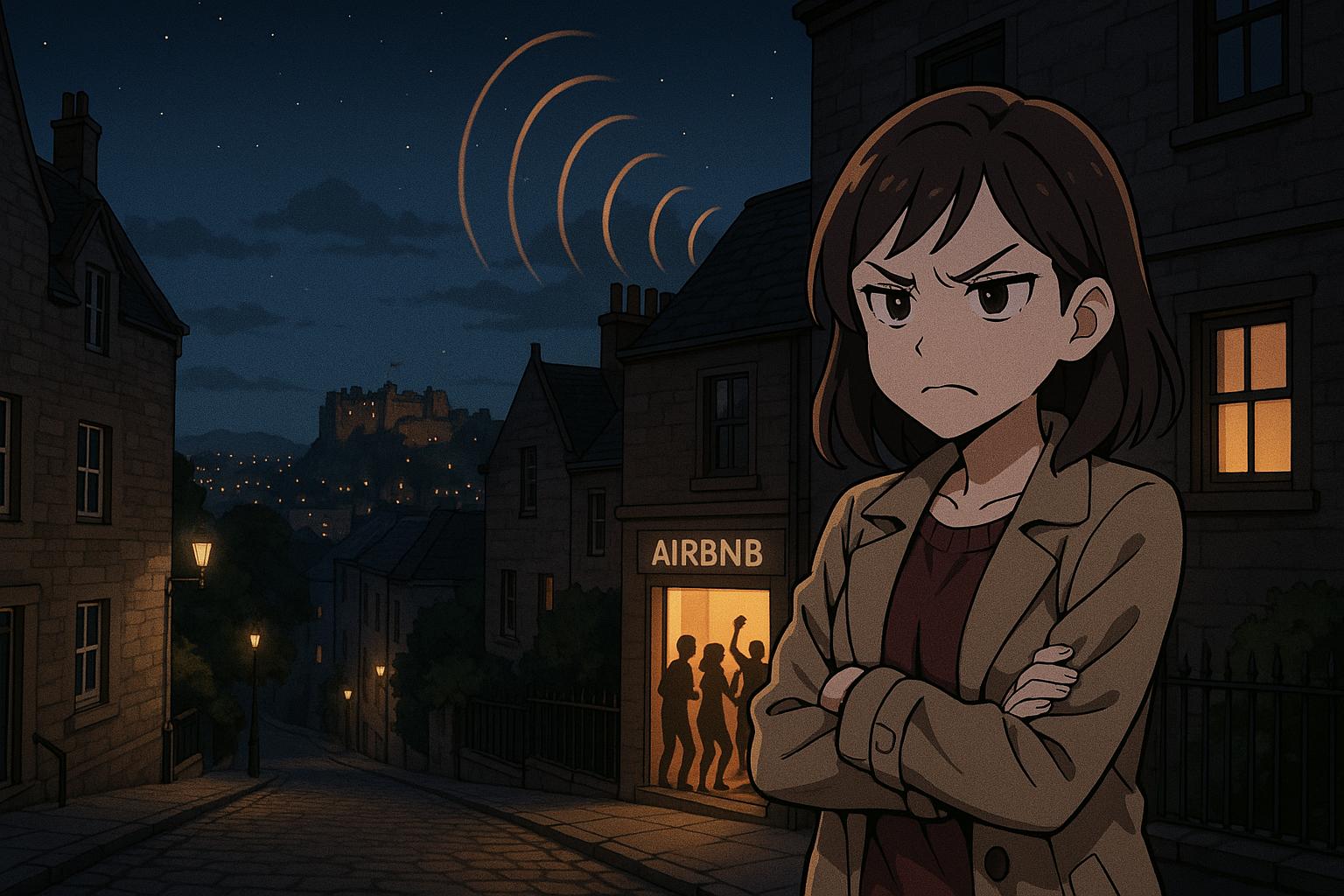In the Faulburn area of Edinburgh, residents are expressing their frustration over a short-term rental that has re-emerged on Airbnb despite previous disruptions caused by partying guests. The property was notably suspended after complaints highlighted significant disturbances, including loud altercations and public drunkenness. However, after undergoing purported soundproofing renovations, the property made a return to the rental market, igniting fury amongst the locals who feel their concerns have been disregarded.
Fraser Ramsay, a resident and local business owner, has voiced his dissatisfaction regarding the situation. He recounted a sleepless night that compelled him to approach the guests directly about their noise levels. Ramsay argued for the property’s reallocation to a long-term tenant, which he believes would foster neighbourly relationships and restore a sense of security in the community. “People are going at all hours of the night… It is ridiculous. He cannot get away with this," he remarked. His sentiments reflect a broader concern among residents regarding how short-term rentals impact their quality of life.
This sentiment is not isolated. Across Edinburgh, community members have increasingly reported noise disturbances and anti-social behaviour linked to partygoers using short-term lets. In a pattern observed since at least 2019, residents have raised alarm about the impacts of these rentals, prompting discussions about potential legislative solutions. In 2022, Edinburgh City Council welcomed Airbnb’s initiative to permanently ban parties and events at properties listed on its platform due to rising complaints about noise and disruptive behaviour. This policy shift stemmed from a temporary ban that saw a notable decrease in issues — a 44% reduction in party complaints, as the council highlighted.
However, the effectiveness of local governance in managing these issues remains debatable. Even as discussions about a licensing scheme have emerged, which aims to regulate short-term lets more stringently, there is ongoing tension regarding enforcement. While the council issued an enforcement notice to the Airbnb owner, giving them a deadline until late June 2025 to comply, the process of substantiating complaints has often proven cumbersome for residents. Previously, neighbors have found themselves in frustrating positions, needing to compile concrete evidence of ongoing disturbances to prompt action.
Councillors have indicated that the council is committed to preserving the residential character of communities and managing the consequences of short-term rentals on local housing. Councillor Joan Griffiths stated that they have issued an enforcement notice to the property owner to cease operations unless an appeal is lodged, yet many residents doubt the effectiveness of these measures in curbing the ongoing issues they face.
Airbnb has maintained a stance of taking resident feedback seriously, noting that while they have provisions to handle disputes—such as contact through their neighbourhood support line—problems still arise. A spokesperson stated that parties are prohibited on their platform, and subsequent violations can result in delisting the property. However, with a history of issues tied to short-term rentals, the local community remains sceptical about the capacity of such policies to bring about meaningful, lasting change.
As residents like Ramsay continue to grapple with the consequences of neighbouring short-term lets, the discourse around how cities manage these modern rental dynamics will only intensify. The collective call for a return to long-term living arrangements amidst a backdrop of pervasive noise and disturbance speaks to the broader societal challenges faced by urban centres navigating the balance between tourism and the needs of permanent residents.
Reference Map:
- Paragraph 1 – [1], [4]
- Paragraph 2 – [1], [2], [5]
- Paragraph 3 – [3], [6]
- Paragraph 4 – [4], [5]
- Paragraph 5 – [2], [3]
Source: Noah Wire Services
